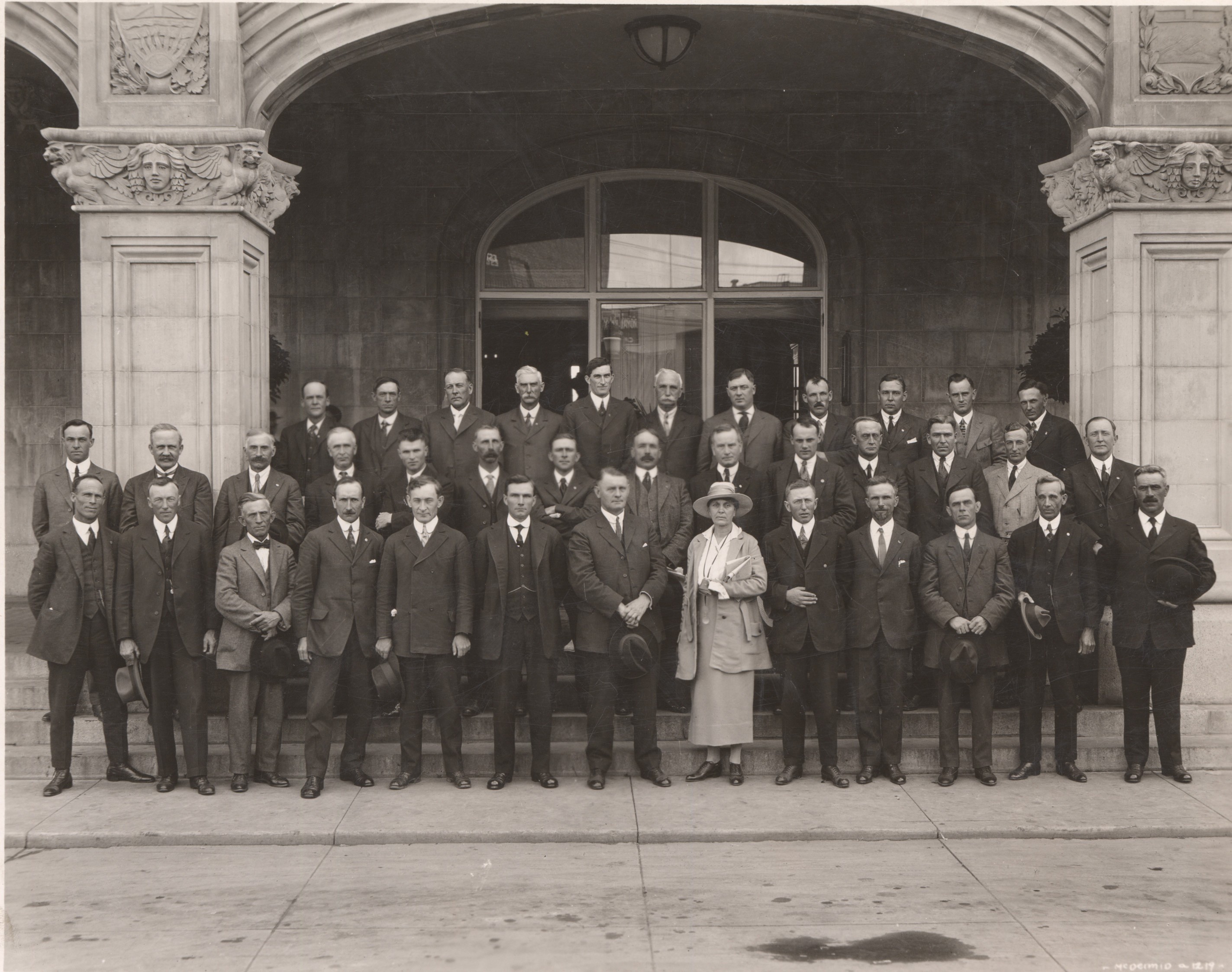There have been some very surprising election results recently – Brexit in Britain and the American presidential election. Although the usual pattern in Alberta consists of very long periods with the same provincial government, there have been three occasions when there has been surprising change.
The most recent surprise happened a year ago when the NDP toppled the 44- year-old Progressive Conservative government.
Another happened in the summer of 1935 when Social Credit, which had never run in an election before, swept to a landslide victory.
The earliest electoral upset happened in July 1921 when the United Farmers of Alberta, which had been a farm advocacy organization and not a political party, became the new government of Alberta.
The U.F.A. victory was rooted in the tremendous turmoil and economic disruptions of the First World War.
Canada had never experienced something as horrific as the War. Tens of thousands lost their lives. Many more came home with wounds to their bodies and/or minds.
For a while, the largely agriculture-based economy did reasonably well.
The crop of 1915 was one of the very best on record. There was strong demand for foodstuffs to support the War effort.
However, the economy quickly turned sour as the War finally drew to a close. The heavy printing of money to finance the War created phenomenal inflation. Veterans returning home had great trouble finding jobs, regardless of whether they were in good health or not. The harvest in 1918 was a poor one. The winter of 1919-1920 was one of the most brutal on record.
Inevitably, the incredible inflation was rapidly replaced by a deep economic depression. Destitution appeared throughout Central Alberta and Canada as a whole.
Traditional political loyalties began to collapse.
The Alberta government had been Liberal. The federal government was Conservative. However, in the 1917 federal election, the Conservatives had combined with most western Liberals to form a Union Government to help bring in military conscription.
The Alberta Liberals initially seemed to hang on.
They won the 1917 provincial election, albeit with fewer seats. The new Non-Partisan League was only able to pick up two seats in southern Alberta. Moreover, in a 1918 by-election in Red Deer, the Liberal candidate, J.J. Gaetz, crushed his Unionist opponent.
However, as the economy spiraled downward, political unrest soared. The executive of the U.F.A. was strongly against the organization becoming directly involved in politics.
Nevertheless, many of the U.F.A. locals disagreed and began to organize politically.
In 1919, a provincial U.F.A. candidate pulled off a surprise victory in a by-election in Cochrane. In the spring of 1921, a federal U.F.A. candidate won by a huge margin in Medicine Hat.
The U.F.A. entered the 1921 provincial election, but only ran 45 candidates.
There was no actual provincial platform, just some general ideas on political and economic reform and a determination to throw the old elites out of power. The message proved to be a powerful one.
In July 1921, the U.F.A. president Henry Wise Wood stated in a speech in Medicine Hat, that, “Farmers may not be ready to take over government, but they are going to do it anyway.”
He was right. Although the U.F.A. got 5% less of the popular vote than the Liberals, they won 38 seats, more than twice the Liberals. Hence, they had the majority in the Legislature and became the new government.
The U.F.A. had no political leader, so they had to quickly select one.
The U.F.A. caucus chose Herbert Greenfield, a farmer from Westlock. He did not have a seat in the Legislature, so a special by-election had to be arranged in Peace River to elect him.
There were many problems once the Legislature met. The U.F.A. MLA’s were highly independent and often bucked any official government positions. Several felt politics should be organized by economic groupings (e.g. farmers) and not by parties.
Nevertheless, the U.F.A. government remained in power for 14 years until it lost every one of its seats to the new Social Credit movement in the 1935 election.



